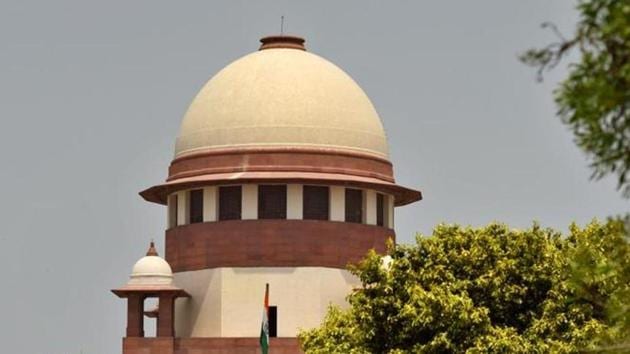CAA threatens Assamese culture and identity, says plea in Supreme Court
The petitioner, All Assam Law Students Union, submitted that the CAA dilutes the constitutional and legal safeguards given to the Assamese people by various laws and the Assam Accord of 1985.
The Citizenship (Amendment) Act (CAA) poses hindrance to the protection and preservation of the culture and identity of the Assamese people, a petition filed by a Guwahati-based organization of Assamese law students told the Supreme Court.

The petitioner, All Assam Law Students Union, submitted that the CAA dilutes the constitutional and legal safeguards given to the Assamese people by various laws and the Assam Accord of 1985.
“The Clause 6 of the Assam Accord specifically mandates the union government and also the State of Assam to protect the Constitutional, legislative and administrative safeguards of the Assamese people and also provides protection, preservation and promotion of the culture, social, linguistic identity and heritage of the Assamese people. As such under no circumstances, the Union Government could have come up with the Citizenship (Amendment) Act, 2019, which dilutes the constitutional, legislative and administrative safeguards of the Assamese people,” the plea said.
A bench, headed by Chief Justice of India SA Bobde, issued notice to the central and Assam governments on Wednesday and tagged the matter to be heard with other petitions challenging the CAA.
The CAA which was passed in December 2019 amends Section 2 of the Citizenship Act, 1955, which defines “illegal migrants”. According to change in definition, any person belonging to Hindu, Sikh, Buddhist, Jain, Parsi or Christian communities from Afghanistan, Bangladesh or Pakistan, and who have been exempted by the Central Government under the Passport (Entry into India) Act, 1920 or the Foreigners Act, 1946, shall not be treated as “illegal migrant”. Consequently, such persons shall be eligible to apply for citizenship by naturalisation, which is laid down under Section 6 of the 1955 act.
The exclusion of Muslim community from the benefits of CAA had led to widespread protests across the country, as did the linking of citizenship with religion. There have also been protests against a proposed all-India National Register of Citizens (NRC).
Over 150 petitions were filed in the Supreme Court challenging the law based on the alleged discrimination against Muslims.
However, the challenge mounted by All Assam Law Students Union is based on the impact the CAA could have on the Assamese identity and how it violates various laws and agreements enacted by the union government to identify and deport illegal migrants and preserve Assamese identity.
The central government had enacted Immigration (Expulsion from Assam) act in 1950 to protect the indigenous people of Assam. This was done after the influx of Bengali speaking people into Assam from East Pakistan after the partition of the country in 1947.
There was a further exodus of Bengalis to Assam during the liberation of East Pakistan by India in 1971 and the formation of Bangladesh.
This eventually culminated in an agitation by the Assamese people and the Assam Accord was signed between the central government, All Assam Students Union (AASU) and the All Assam Gana Sangram Parished (AAGSP) in 1985.
The Assam Accord mandated that foreigners who came to Assam on or after March 25, 1971 shall be detected, deleted and practical steps shall be taken to expel such foreigners.
Pursuant to the Assam Accord, the central government in 1985 inserted section 6A in the Citizenship Act. As per the same, illegal migrants who entered Assam from Bangladesh up to March 24, 1971 were granted citizenship of India but a specific assurance was also given that illegal migrants entering the state of Assam on or after March 25, 1971 would be deported back to Bangladesh.
The petitioner claimed that the CAA makes section 6A of the Citizenship Act and the Assam Accord meaningless. It would enable illegal immigrants to become Indian citizens and the entire process set up by the Assam Accord and section 6A would be diluted.
“Bringing outsiders or including the illegal immigrants as citizens shall worsen the situation and cause serious after-effects in the cultural, economical, social and political genre of Assam,” the petition said.
Get Current Updates on India News, Lok Sabha Election 2024 live, Infosys Q4 Results Live, Elections 2024, Election 2024 Date along with Latest News and Top Headlines from India and around the world.



